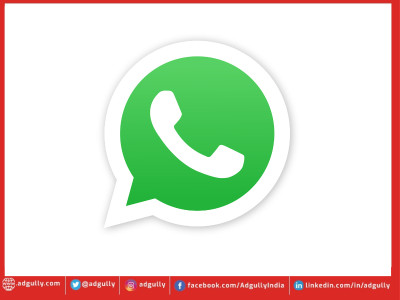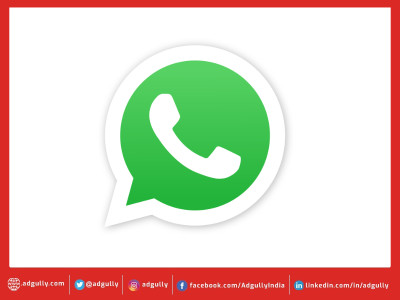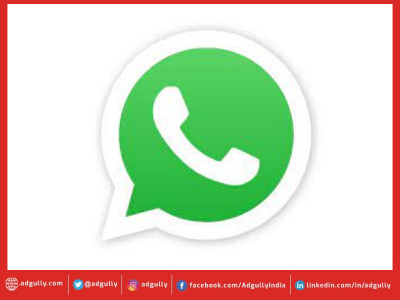Move on WhatsApp forwards of PDF copies spurs print industry to take action
Print publications are undergoing possibly the toughest times ever due to the COVID-19 disruption and the nation-wide lockdown. Wrong perception about newspapers being carriers of the Coronavirus, along with distribution being severely curtailed due to the lockdown, saw newspaper delivery come to a standstill across the country. E-paper editions of newspapers kept the readers stay connected to their favourite publications in the absence of the physical editions. However, newspapers are now back in circulation and the industry has collectively come out with several awareness campaigns to stress that newspapers are not carriers of the virus. A statement issued by the Indian Newspaper Society (INS) said that distribution has stabilised in most parts of the country, barring a few cities.
Now a new issue has arisen regarding PDF versions of newspapers being circulated on WhatsApp groups, which has galvanised print publishers into action.
In its May 2, 2020 edition, Hindi daily Dainik Bhaskar had reported that sharing PDF versions of newspapers on WhatsApp groups is a violation of the law. The report stated that this was causing revenue loss to the newspapers. A Gujarati daily also carried a news report on the same.
On Monday, May 4, INS cautioned against piracy and theft of newspapers in digital format.
A statement issued mentioned, “A lot of newspapers are available in the ePaper format online in the morning every day, some of them being paid and some being free. Many users are actually copying the newspaper and creating PDFs which they circulate in WhatsApp and Telegram groups to the readers - leading to a loss in both subscription revenue for the print newspapers as well as ePapers digitally.”
The industry body laid out a set of recommendations to print publishers on how to protect their Intellectual Property.
- Communicate clearly in the Apps, Websites and Newspapers - that circulating any copies or part thereof, is ILLEGAL and strict legal action will be taken against individuals with heavy penalties.
- Additionally, also for any legal action taken, publish few news stories to talk about the huge fines and lawsuits initiated against offenders to deter others from doing it.
- Take legal action against offenders, especially against WhatsApp and Telegram admins who’re offending and trigger legal notices (WhatsApp group admins are liable for anything illegal that happens in their groups)
- Build certain product features which prevent piracy or at least slow it down, such as
- Limit downloading as PDFs, Images
- Add Java script code on pages to prevent copying
- Insert a user identifier code which is not human visible, so circulated PDFs on Social Media can be tracked back to individuals
- Auto generate list of users downloading greater than a certain number of PDFs per week and block them
Meanwhile, an India Today article quoted Shailesh Gupta, President, INS, as saying that, “It is okay to forward PDF files which are free, but it is not okay to copy a PDF from a paid ePaper service and forward it.”
These are not normal times
Speaking on the issue to Adgully, Sandeep Rao, Lead Admin, One Source, the marketing forum, clarified that only certain newspaper publications supported such a move. Some, such as the Express Group had said that they would continue with the free PDFs. HT Media is also offering the ePapers of Hindustan Times and Hindustan for free, while one-month complimentary access is being given to business daily Mint. The ePapers of Business Line and The Hindu are being offered for free trial for a period of 21 days and 15 days, respectively. The April 2020 edition of Forbes India can be downloaded for free.
Rao further said that with the hard copies of newspapers still not that widely circulated, PDF and ePaper versions can shore up the readership and circulation numbers. This, in turn, will attract the advertisers, who are shifting to other media, such as digital during these times. Lack of ad revenues will hit the very business of newspaper publications. Moreover, regional publications will also be hit.
He also said that so far, the Ministry of Information & Broadcasting has not stated that forwarding or sharing of PDFs and ePaper editions on digital media is illegal. Hence, publications can decide for themselves whether or not to allow such forwards.
In the meantime, to play it safe, One Source has asked its members not to share newspaper PDFs going forward.
“Most publications share the newspaper PDFs through their websites or partner apps. If a media house gives free PDFs of ePaper, then circulating them for non-commercial purposes also shouldn’t be illegal,” insisted Tinu Cherian Abraham, Global PR Lead of an IT & Tech company.
In these times of lockdown, where readers don’t get the physical newspapers and magazines at their homes or shops, there is heavy dependence on PDF ePapers that are freely available on respective media websites and are circulated through various WhatsApp groups.
“These are not normal times, where people used to get these newspapers at their doorstep. If there is no physical delivery, then the issue of affecting the sale of papers is not valid,” Abraham maintained.
He further said, “A lot of advertisements come to print media, because of the high readership and not merely by the sale of circulation copies. If readership drops because of lockdown and post-lockdown, so will advertisements and revenue. It is important to keep people reading the newspapers till we get to good old days where we get the papers at home.”
Once the lockdown began and print media players started facing distribution bottlenecks, most players who had put their ePaper behind the paywall opened it up to users for free. Earlier, when fake news was being circulated around COVID-19, the print industry took a stance by launching a joint communications campaign to inform readers. Now, will this development spur print media to once again campaign against digital theft?
This was certainly avoidable
Independent print media consultant AS Raghunath remarked that the industry itself was surprised at such a move since several newspapers were freely allowing ePaper editions to their locked down readers. He further said that the two newspapers that had carried this half truth news in the last two days were pretty misleading to their own readers’ community and had added to the confusion. “People raised questions on social media, even as another daily ran a story to the contrary. Amid this confusion, a national magazine did a fact check and brought to light that this ban was only for such ePapers which were behind the paywall. Those newspapers anyway were not being forwarded on Whatsapp by the ordinary people. This was certainly avoidable.”
According to Raghunath, it was just a morning ritual by some eager social media enthusiast in any Whatsapp group. He pointed out, “These being PDF files, are not uploaded on Twitter or Facebook, but only shared on Whatsapp. And Whatsapp being accessed mostly on small mobile screens, there was no serious reading of news from such PDF files.”
Nevertheless, he agreed that forwards would increase the readership base. “I have always maintained that in a readership survey, which is completely on the basis of the Masthead’s recall basis, such forwards of ePaper’s copy would always add to the readership count. The survey is never conducted on the basis of showing of a newspaper by a respondent to the field surveyor,” he added.
While Raghunath considered putting the ePaper behind the paywall to be a good move, at the same time he felt that 40+ days lockdown time wasn’t the right time to enforce this. He observed, “Newspaper reading is by habit formation. And 40+ days lockdown is a pretty long period to get a print addict off the newspaper reading habit. Besides, consider this. Once the lockdown is over, it would be a tough ask for the circulation workers and vendors to get back to the same print order number as it was before. A good brand management move would have been to free the paywall in such lockdown phase and allow the newspaper readers to read their preferred brands as before. It would have also steadied the ePaper’s traffic, too, to attract better digital advertising.”
Once the lockdown began and print media players started facing distribution bottlenecks, most players who had put their ePaper behind the paywall opened it up to users for free. Earlier, when fake news was being circulated around COVID-19, the print industry took a stance by launching a joint communications campaign to inform readers. Now, will this development spur print media to once again campaign against digital theft?


















Share
Facebook
YouTube
Tweet
Twitter
LinkedIn